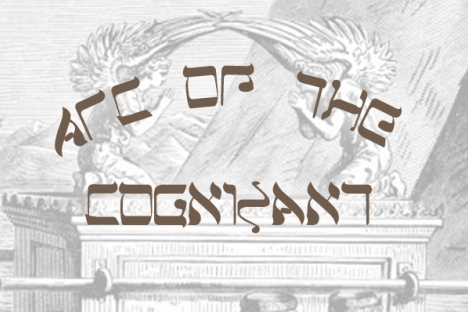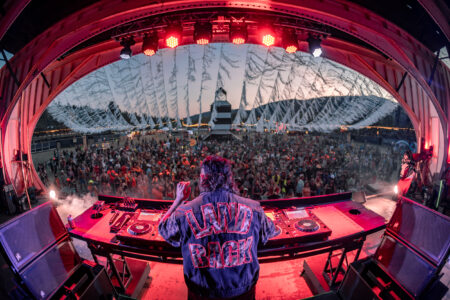Column: Historical curiosities, Part II -- Culture wars
Part II
Cultural Revolutions and Wars, changing millions in swift strokes
Culture is a small word to cover a phenomenon encompassing just about everything humans do and think and express, all things about us that are not of “nature.” Change culture and you change humans, is pretty much the assumption.
Intellectuals and artists hail a “cultural revolution” as the phenomenon that can, and should alter society without violence, and transform individuals in the mass if only there could be a change in culture that happens as quickly as political change happens. A few choice words about Culture:
“Culture is not your friend.” — Terence McKenna
“Take away culture and you have nothing left making humans be human.” — Franz Boas
“Culture must be the servant of the State.” — J. Goebbels
“When I hear the word ‘kultur’ — I reach for my pistol.” — H. Goering
My own metaphor: “Culture is the skeleton, nervous system, and musculature of humans relating to the world of matter and of social being.”
I want to address a few ideas about cultural revolution and culture war.
Boomers have been very much shaped by the late 1960’s and early 70’s when it comes to cultural matters. I for one was enthralled by that revolutionary period. Revolutionary? In feeling, if not in effect: the feeling of power to change the world, the up-welling sense that Youth owned the future, the excitement on campuses in struggle against the war, for civil and women’s rights, for the New Left, for democracy and justice. In far-left communist parties (Trotskyites, Maoists, CCP) and then in socialist activism, I’ve been a man marked by the ’ 60’s political ethos.
Drugs and experimentation with them were part of the era. Rock and roll as a unifying cultural force, another ingredient. Hair, clothing and language were signifiers of being part of that time. I would say people who experimented with a radical alternative communitarian life – when one lived on a collective farm on the land — were also typical of those times. They are less typical now.
I. A culture war
The USA has been the arena of something Americans call “the culture wars.” It is not a phrase I’ve encountered in Canadian contexts, nor in European, for we seem to keep political conflict (“war”) in political spheres, not cultural. For the USA, the phrase means so much: political party alignments, religious and sexual behaviours, taste in music and performance arts, economic activity, are involved in the culture wars. For conservatives, the transformative effects of the Sixties are viewed as mostly negative, while liberals tend to view the era more positively.
The USA manifests its culture war in the way typical of its people and their history, with battle lines drawn on issues like reproductive rights, religion and State relations, and individual vs. social responsibility in healthcare and economy. In other nations of the West, the issues may be different, but policy around drug use and sexual orientation – what to legalize, what to outlaw – are pretty much generalized across the democracies of the wealthy world.
Canada has had a prime minister who spoke explicitly against his interpretation of the Sixties; Stephen Harper expressed disapproval of that era in a comment: “There was a sort of attitude of, you know, ‘Do your own thing, do what you want, don’t let moral rules stop you … ” His political bete noire was Pierre Trudeau, who famously declared, “The State has no business in the bedrooms of the nation” and is celebrated for his liberalizing of Canadian criminal law regarding homosexual relations.
II. A cultural revolution
China has had a decade-long Cultural Revolution during my lifetime, between about 1966 and the death of Mao in1976. Mao set hordes of not-quite-adult Red Guards loose upon China, moving about the land in masses waving aloft his Little Red Book of Maozedong Thought, challenging the Party experts and bureaucrats wherever their authority was established. Teens and twenty-year-olds were given Mao’s own sanction to smash Confucian respect — for age, for education, and for hierarchy — and Communist party orthodoxy, in a bid by him to break up the new Chinese Establishment and reassert his hegemony over Zhou Enlai and Deng Xiaoping.
Today, this decade appears in the official histories as an episode of Mao’s waning mind, an error of his declining years, a wrong path, a deviation. There is no doubt the events, which Mao declared to be a war on “capitalist roaders” in the Party, were materially harmful to the economy. China’s post-Mao leadership took that road to capitalism in the ‘90’s.
Today, Xi Jinpeng, supreme leader under the Chinese Constitution for the duration of his life, has an app for his version of a red book on the iPhones of billions of Chinese, an e-version of “Xi Jinpeng thought.”
III. Personal Cultural Notes on the West Kootenays
I have never stopped being influenced by the revolutionary vibe of the Sixties era. I am “Bohemian” by the judgment of my uncle (his word to me) “misfit-rebel” (my dad at a moment of irritation) and “an old hippy.” I have been unwilling to conform to key aspects of bourgeois materialism: a sustained career ladder, marriage (none), ownership of house and land… none of these norms had any appeal to me. Yet many people lived through those times and went on to career, possession, accumulation of material, social status, and establishment culture, unlike me. One can live within a culture of quick and numerous changes and still conserve some patterns unaltered.
I have tried to invent a culture of one, myself, like many others in the Kootenays. Each with our own spiritual/religious path, own way of material support, own notion of the good life. Draft-dodgers and pacifists (Doukhobors, Quakers) and odd religious sects (the Mormons at Bountiful) found a place here. The Nelson Waldorf School and the Chinese Academy of Science are other examples of subcultures unusual in a small rural region. Urban refugees feeling alienated from modern lives in high-pressure work come pursuing a new way, and many appear to find it here.
My daughter and her community of young parents, loving organic local whole food, disliking money, distrusting the Overworld: She has anti-vax opinions, practices Wiccan spirituality, and is a feminist of a non-political sort. She loves life lived close to natural land, trees, water, animals – not life in cities. She seems to have a circle of very close women friends who share many of her values. Their dream is familiar to me as a Sixties veteran; they want to have land and create a unique community on it. Intentional communities have been, and still are, a Kootenay lifestyle choice.
Here ends Part II. Part III will be published next week.

























